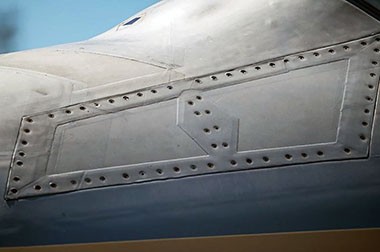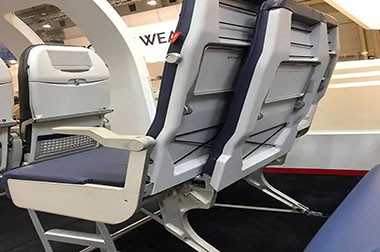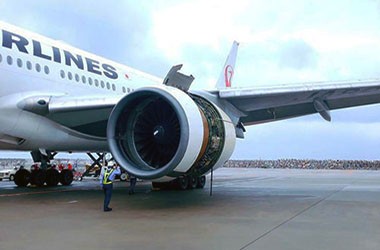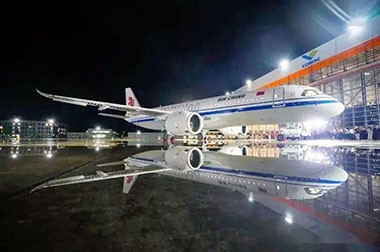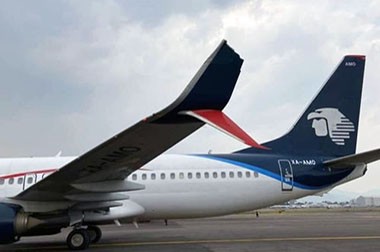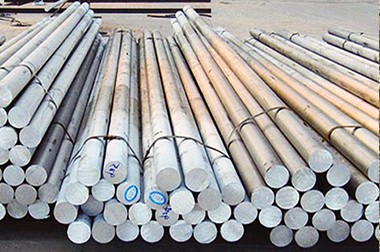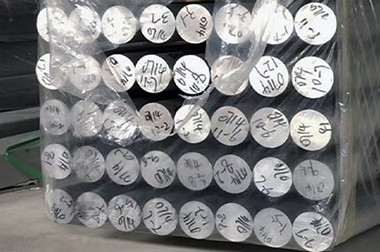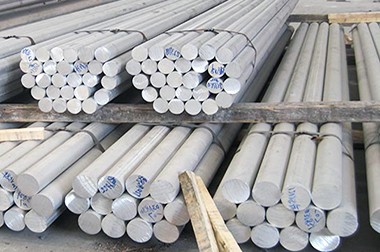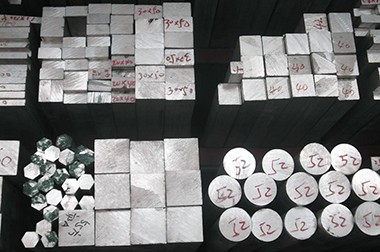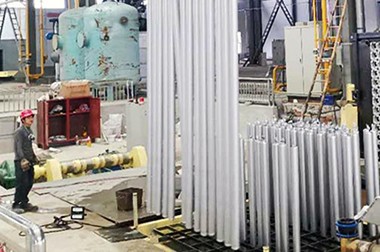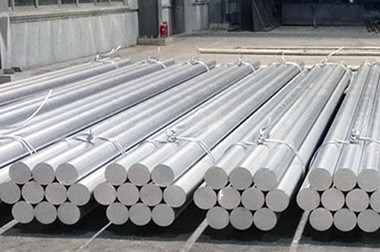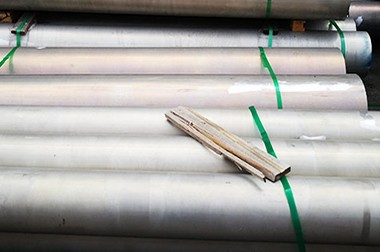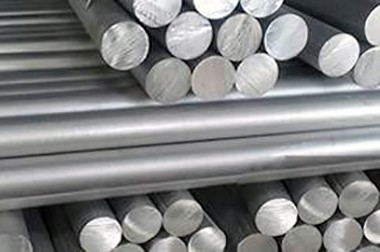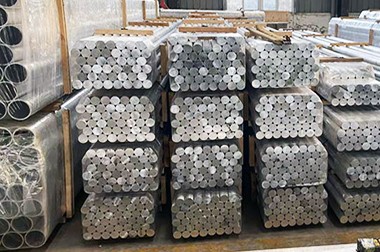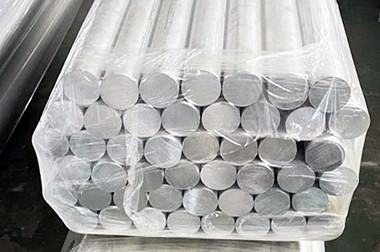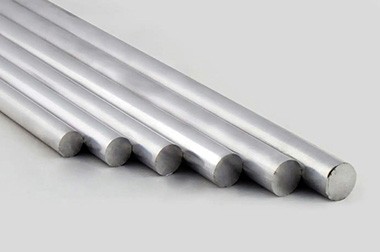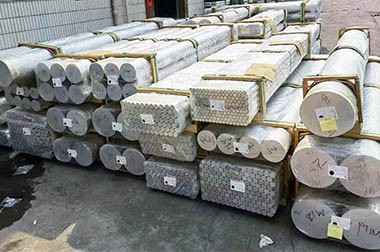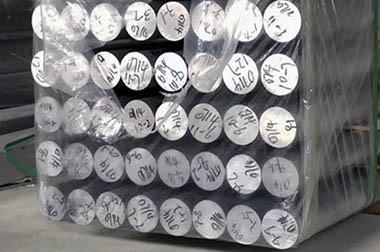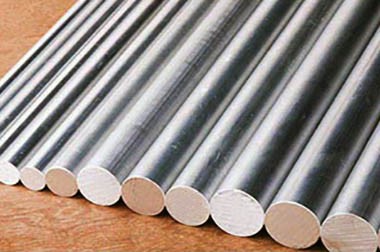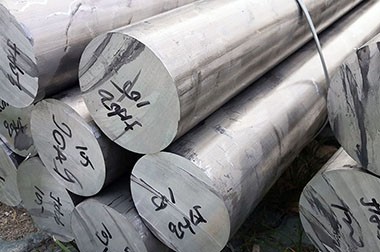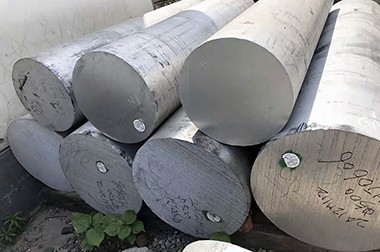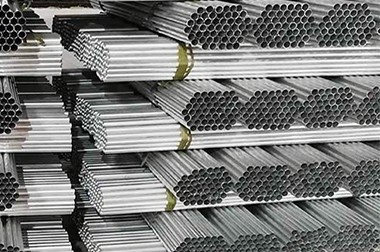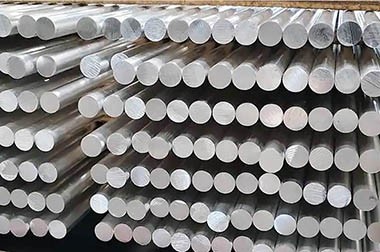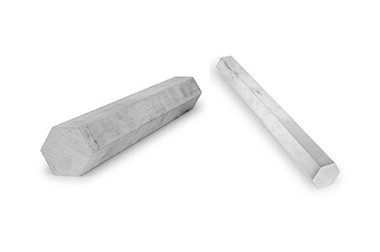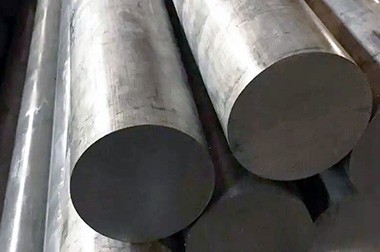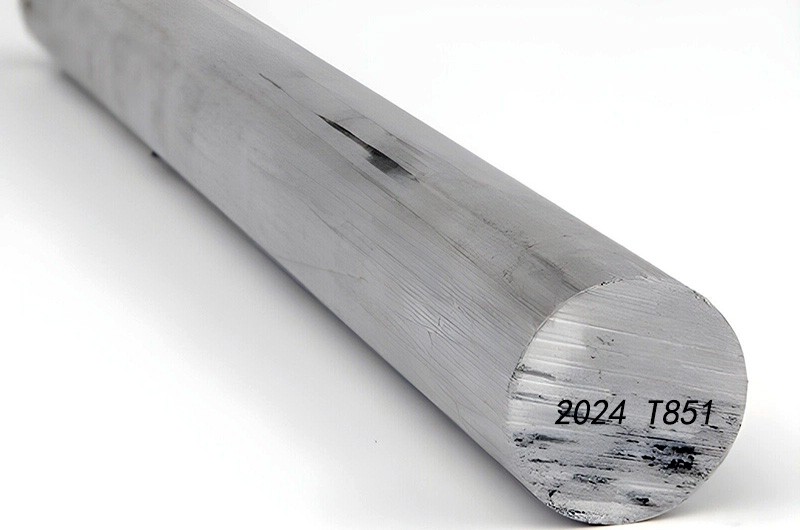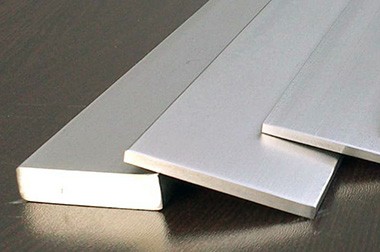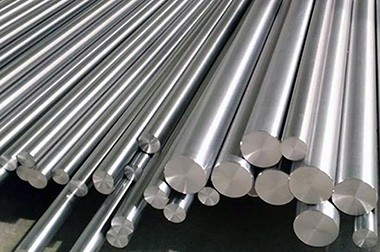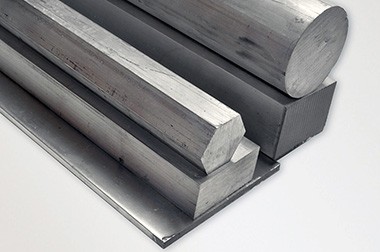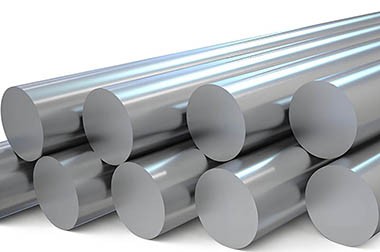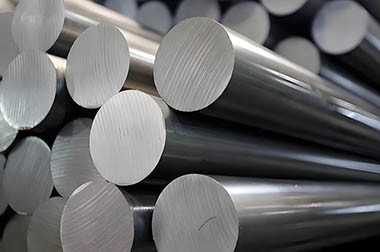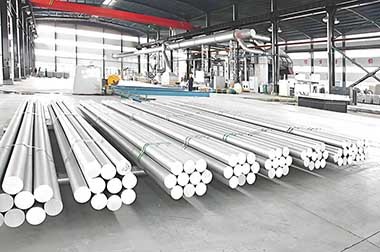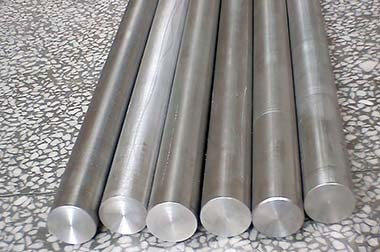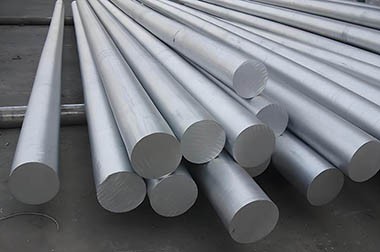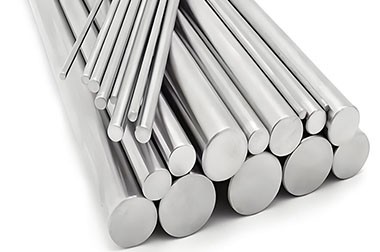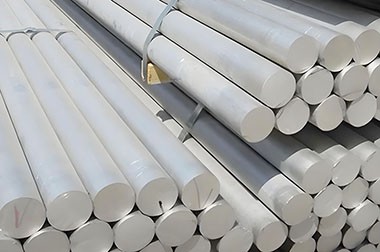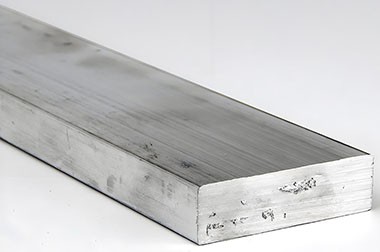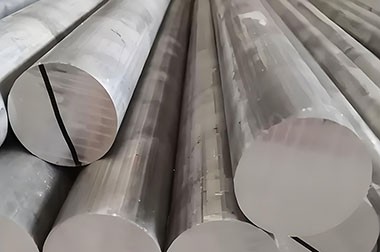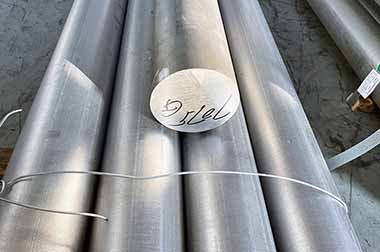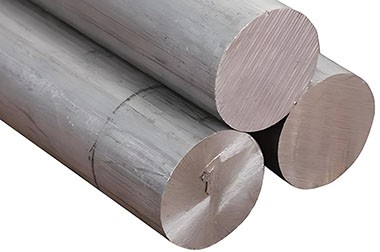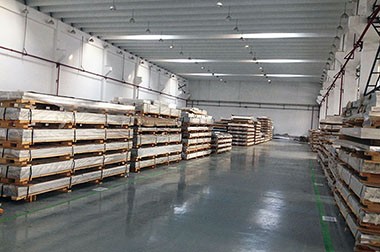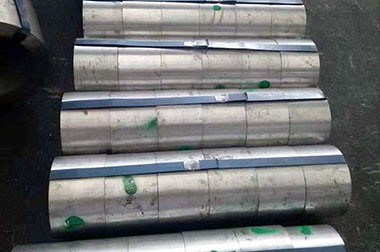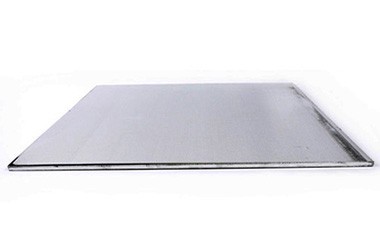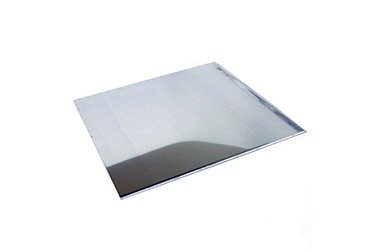2024 T3 T351 Aerospace Aluminum Rod Bar
2024 aluminum bars and rods excel in high-strength, lightweight applications but require corrosion protection. Their performance varies significantly with temper, making them versatile for aerospace, automotive, and industrial uses.
2024 aluminum alloy is an aluminum alloy with copper as the primary alloying element, belonging to the high-strength series of aluminum alloys. It is widely used in the aerospace, automotive, and military industries.
2024 aerospace aluminum rod is a high-strength aluminum alloy material, mainly used in the aerospace field and other applications that require high strength and low weight.
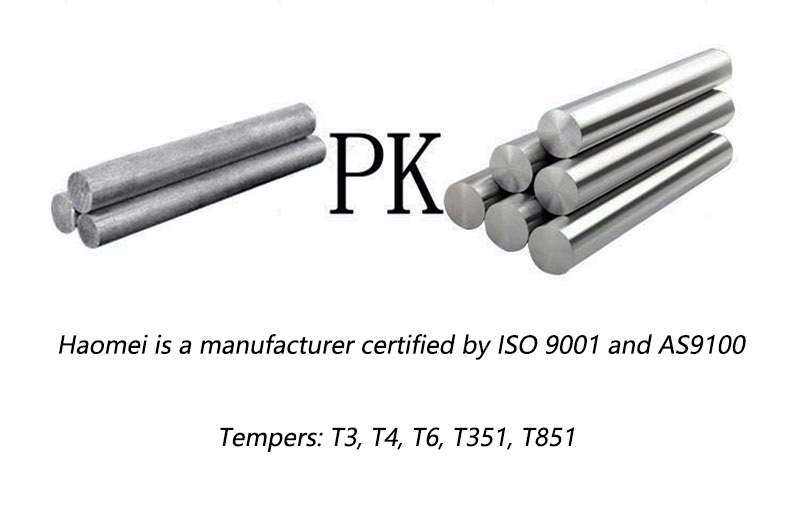
2024 Aluminum Bars and Rods Standards and Specifications
Common standards include:
- ASTM B211 (bars, rods, wire) .
- AMS 4120 (aerospace-grade bars) .
- ASTM B209 (sheets/plates) .
Characteristics of 2024 Aerospace Aluminum Rod Bar
- 1. High strength: 2024 aluminum alloy has excellent tensile and yield strength, making it suitable for load-bearing structural components.
- 2. Good fatigue performance: 2024 aluminum alloy exhibits good fatigue strength under repeated loads.
- 3. Corrosion resistance: Although 2024 aluminum alloy has relatively poor corrosion resistance, surface treatments such as anodizing can improve its corrosion resistance.
- 4. Weldability: 2024 aluminum alloy has poor weldability, often requiring specialized welding techniques or the use of other alloys for welding.
Haomei 2024 Aerospace Aluminum Rod Bar Hot-Selling Alloy Series
2024 T3 Aluminum Rod Bar
The T3 temper indicates that the aluminum has undergone solution heat treatment followed by cold working. This process significantly enhances the strength of the material.
Characteristics of 2024 T3 Aluminum Rod Bar
- Strength: High tensile strength and yield strength, suitable for aerospace structural applications.
- Ductility: Moderate ductility, allowing for some forming and shaping.
- Corrosion resistance: General, but typically requires a protective coating to enhance durability.
2024 T3 aluminum rod bar is commonly used in aircraft structures, such as wing skins, fuselage components, and other critical load-bearing parts.
2024 T4 Aluminum Rod Bar
The T4 temper indicates that the aluminum has undergone solution heat treatment and has naturally aged to a stable condition. Compared to T3, this material is easier to work with.
Characteristics of 2024 T4 Aluminum Rod Bar
- Strength: Lower strength than T3, but still offers good mechanical properties.
- Ductility: Higher ductility than T3, providing better formability.
- Corrosion resistance: Similar to T3; a protective coating is recommended to improve corrosion resistance.
2024 T4 aluminum rod bar is typically used in applications requiring good formability, such as manufacturing aircraft parts that need to be shaped or bent.
2024 T351 Aluminum Rod Bar
The T351 temper indicates that the aluminum has undergone solution heat treatment followed by artificial aging. The "T351" temper is known for its high strength and improved toughness.
Characteristics of 2024 T351 Aluminum Rod Bar
- Strength: Very high tensile strength and yield strength, making it suitable for demanding applications.
- Ductility: Moderate ductility, allowing for some degree of forming.
- Corrosion resistance: Similar to other 2024 tempers; a protective coating is recommended to enhance performance.
2024 T351 aluminum rod bar is widely used in aerospace applications, particularly in components that must withstand high stress, such as aircraft frames and wing structures.
2024 T851 Aluminum Rod Bar
The T851 temper represents a solution heat-treated condition followed by artificial aging and stress-relief processing. This results in a very stable and high-strength material.
Characteristics of 2024 T851 Aluminum Rod Bar
- Strength: Extremely high tensile and yield strength, often exceeding that of T3 and T351.
- Ductility: Lower ductility compared to T3 and T4 but still suitable for certain applications.
- Corrosion resistance: Similar to other 2024 tempers; protective measures are recommended.
2024 T851 aluminum rod bar is used in critical aerospace applications that require maximum strength, such as aircraft structural components subjected to enormous loads.
Advantages and Limitations of 2024 Aerospace Aluminum Rod
Advantages of 2024 Aerospace Aluminum Rod
- 1. High strength-to-weight ratio.
- 2. Good fatigue performance.
- 3. Suitable for machining into complex shapes.
Limitations of 2024 Aerospace Aluminum Rod
- 1. Relatively poor corrosion resistance, usually requiring surface treatments.
- 2. High welding requirements, requiring specialized welding techniques.
Haomei is a manufacturer certified by ISO 9001 and AS9100, supplying 2024 aerospace aluminum rods according to the following processing and specifications:
- Tempers: T3, T4, T6, T351, T851
- Specifications: ASTM B211, AMS 4120, AMS 4339, AMS-QQ-A-225/6, ASTM B221, AMS 4152, AMS-QQ-A-200/3, EN 573-3, GB/T 6892, and other standards.
2024 alloy typical chemical composition
| Element | Min. | Max. |
| Si | 0 | 0.5% |
| Fe | 0 | 0.5% |
| Cu | 3.8% | 4.9% |
| Mn | 1.2% | 1.8% |
| Mg | 0.3% | 0.9% |
| Cr | 0. | 0.1% |
| Zn | 0 | 0.25% |
| Ti | 0 | 0.15% |
| Al | 92% | 93.5% |
2024 alloy typical mechanical properties
| Temper | Tensile strength | Yeild strength | Elongation |
| T4 | 460 MPa | 220 MPa | 19 % |
| T351 | 460 MPa | 260 MPa | 19 % |
| T851 | 480 MPa | 450 MPa | 20 % |
2024 Aluminum Bars and Rods Applications
| Application | Description |
| Aerospace | 2024 aluminum bars and rods are widely used in aircraft structural components such as wing ribs, fuselage skins, and rivets due to their excellent strength and heat resistance. Their high strength allows them to withstand the extreme stresses encountered during flight, while their relatively low density ensures lightweight design, improving fuel efficiency and flight performance. Additionally, the exceptional weldability and good corrosion resistance of 2024 aluminum ensure the long-term stability of these components in harsh working environments. |
| Landing Gear and Hydraulic Systems | In aircraft landing gear and hydraulic systems, 2024 aluminum bars and rods are ideal materials due to their high strength, fatigue resistance, and corrosion resistance. These components must endure significant impacts and repetitive stresses during takeoff and landing, and 2024 aluminum’s superior mechanical properties ensure the reliable performance and longevity of landing gear and hydraulic systems. |
| Automotive | 2024 aluminum bars and rods are widely used in the automotive industry, especially for high-performance components. Due to their high strength and lightweight nature, they are used in suspension systems and lightweight frames, helping reduce the overall weight of vehicles and enhancing performance. Additionally, the corrosion resistance and ease of processing make 2024 aluminum an ideal material for improving the durability and reliability of automotive parts over time. |
| Industrial Machinery | In industrial machinery requiring precise machining, 2024 aluminum bars and rods are commonly used for manufacturing critical components such as gears, shafts, and connectors. These parts demand high strength, excellent wear resistance, and fatigue resistance, and 2024 aluminum’s properties meet these needs. Its superior machinability allows for the production of intricate parts, ensuring efficient and stable operation of industrial equipment. |
| Military/Defense | 2024 aluminum bars and rods are extensively used in the military and defense sectors, particularly in the manufacture of armor plates and vehicle components. Due to its outstanding strength and impact resistance, 2024 aluminum effectively protects equipment from damage. Its lightweight characteristics enhance the mobility of military vehicles and equipment, while maintaining the necessary strength to withstand high-stress combat environments. |
2024 Aluminum Bars and Rods Machining and Fabrication
| Property | Description |
| Machinability | 2024 aluminum bars and rods exhibit good machinability, especially in the T3/T4 temper, where they achieve a 70% machinability rating. This temper is optimal for machining due to its balance of strength and workability. However, because 2024 aluminum has a tendency to work-harden, it requires careful control of machining parameters such as cutting speed and feed rate. The material can be easily cut, drilled, and turned in the T3/T4 state, making it ideal for precision machining in aerospace, automotive, and industrial applications. |
| Weldability | 2024 aluminum bars and rods pose challenges in welding due to their high copper content, which can lead to issues such as intergranular cracking during gas welding. This occurs because the copper in the alloy can form brittle phases when exposed to the heat of welding. As a result, welding 2024 aluminum requires special care and techniques. Spot welding or riveting are preferred methods for joining 2024 aluminum components, as they minimize the risk of cracking and distortion, and provide strong, reliable connections. |
| Formability | 2024 aluminum bars and rods are highly suitable for forming into complex shapes, especially when in the annealed or newly quenched state. In these conditions, the alloy becomes more malleable, allowing for easy shaping into intricate profiles or custom designs. The excellent formability of 2024 aluminum makes it a popular choice for creating complex parts used in aerospace and automotive applications, where high strength and precise geometries are required. However, it is important to ensure proper heat treatment to maintain the desired mechanical properties after forming. |
You may also be interested in the following
-
2024 T4 Aircraft Aluminum Sheet Plate for Fuselage Skins
The 2024-T4 aluminum alloy used for the fuselage skin features high strength, good formability, and excellent plate shape and surface quality.
-
7150 7055 2024 Aluminum for Aircraft Wing Panel
7150, 7055, 2024 have high strength, high toughness, corrosion resistance and other properties, suitable for manufacturing wing skin wall panels, wing ribs and webs and other structural parts.
-
7055 2024 Aluminum Plate for Aircraft Seats
7055 and 2024 aluminum alloy profiles are commonly used materials for manufacturing aircraft seats and are widely used due to their excellent performance.
-
2024 Aerospace Aluminum for Engine Cowl Skins
2024 high-strength aluminum is used for engine cowling skins because of its strength-to-weight ratio and high-temperature resistance, providing protection and optimal airflow.
-
2024 7075 Aerospace Aluminum for Door Components
2024 and 7075 high-strength aluminum alloys are used in aircraft door components to ensure durability, deformation resistance, and safety.
-
2024, 7075, and 7475 Aerospace Aluminum for Wing Skins
2024, 7075, and 7475 combinations exhibit excellent strength and fatigue resistance, making them suitable for wing skins to withstand deformation under stress.
-
2024 7075 Aerospace Aluminum for Fuselage Frames
2024, 7075, and 7475 aluminum alloys are essential materials in aerospace engineering, particularly for fuselage frames. Their unique properties enable engineers to select the most appropriate alloy based on specific requirements for strength, weight, corrosion resistance, and fatigue performance.
-
2024 7050 7075 Aerospace Aluminum for Horizontal Tail Fittings
Alloys 2024, 7050, and 7075 provide the necessary strength and stiffness for horizontal tail components of aircraft, ensuring reliable control surface performance.

